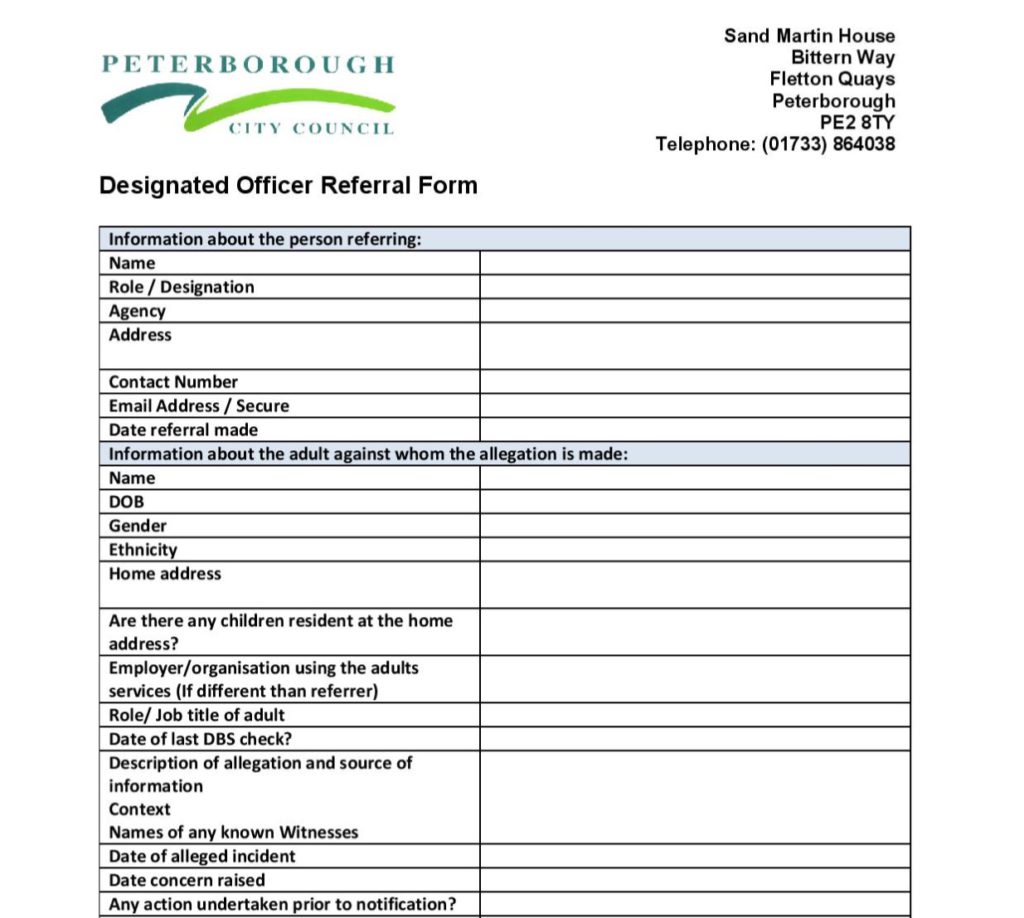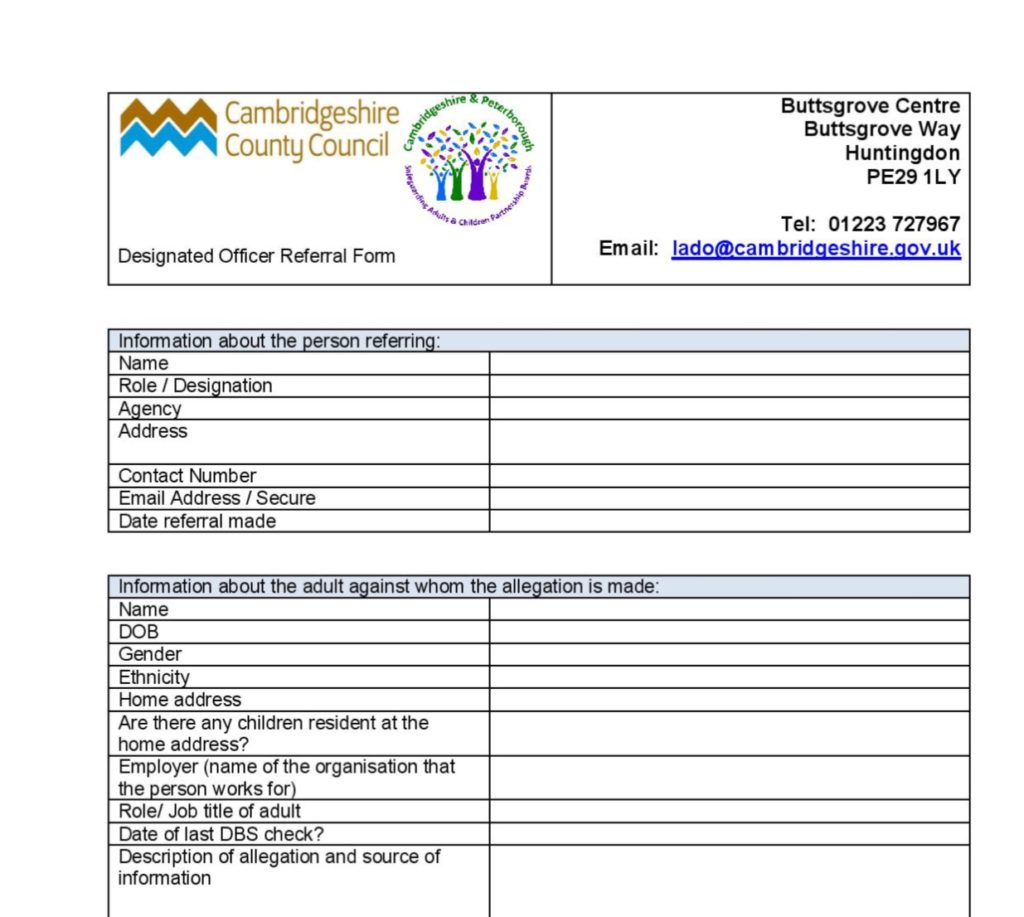Allegations Against People in a Position of Trust
Allegations or concerns that an adult who works with children, whether in a paid or unpaid capacity including foster carers, approved adopters and child minders, has:
- Behaved in a way that has harmed a child, or may have harmed a child;
- Possibly committed a criminal offence against or related to a child;
- Behaved towards a child or children in a way that indicates he or she may pose a risk of harm to children.
These behaviours should be considered within the context of the four categories of abuse (i.e. physical, sexual and emotional abuse and neglect). These include concerns relating to inappropriate relationships between members of staff and children or young people, for example:
- Having a sexual relationship with a child under 18 if in a position of trust in respect of that child, even if consensual (see ss16-19 Sexual Offences Act 2003);
- ‘Grooming’, i.e. meeting a child under 16 with intent to commit a relevant offence (see s15 Sexual Offences Act 2003);
- Other ‘grooming’ behaviour giving rise to concerns of a broader child protection nature (e.g. inappropriate text / e-mail messages or images, gifts, socialising etc);
- Possession of indecent photographs / pseudo-photographs of children.
The role of the Local Authority Designated Officer (LADO):
Working Together to Safeguard Children states that local authorities should have a designated officer or a team of designated officers involved in the management and oversight of allegations against people that work with children.
- The LADO has management and oversight of the investigation process from beginning to end following an allegation against people in a position of trust who work with children.
- The LADO is not the decision maker – this remains with the employer, but they will provide advice and guidance to employers and voluntary organisations, liaise with police and other agencies and monitor progress of cases to ensure they are dealt with as quickly as possible, consistent with a fair and thorough process.
- The LADO process applies to everyone who works or volunteers with children.
LADO Referrals
If you have concerns about an adult working with a child under the age of 18 that you would like to report, please follow this link for the Managing Allegations or Serious Concerns in Respect of any Adult who Works or Volunteers with Children Procedure
It is essential that any allegation of abuse made against a person who works with children and young people including those who work in a voluntary capacity are dealt with fairly, quickly, and consistently, in a way that provides effective protection for the child, and at the same time supports the person who is the subject of the allegation.
IMPORTANT – The employer must inform the local authority designated officer (LADO) within one working day when an allegation is made and prior to any further investigation taking place.
Local Authority Designated Officers can be contacted for allegations against all staff and volunteers via:
- Email:
- Telephone contacts:
- 01223 727967 – Cambridgeshire
- 01733 864038 – Peterborough
- Out of Hours Emergency Duty Team: 0345 0455203 Cambridge, 01733 864180 Peterborough
LADO Referral Form


